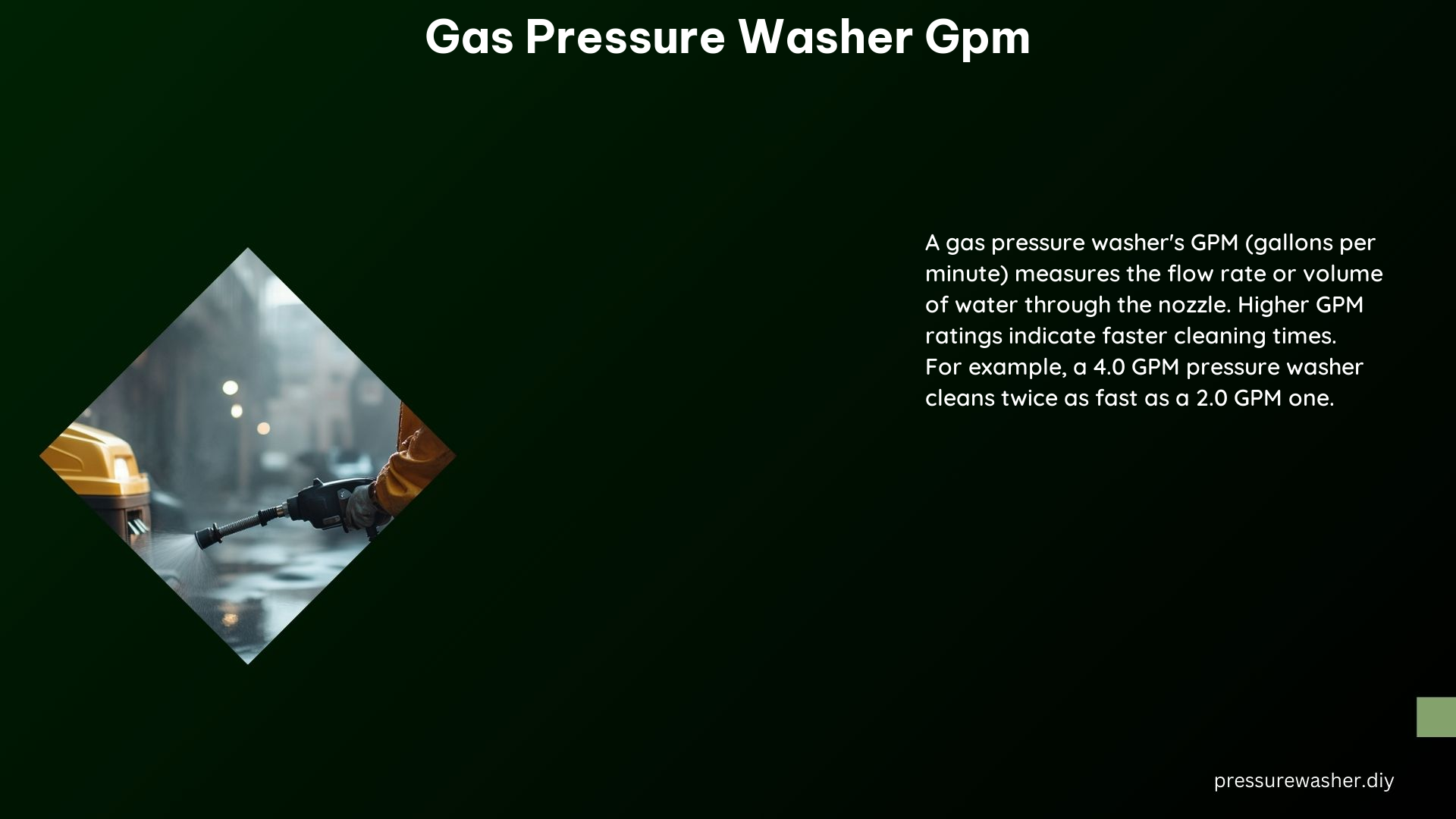When it comes to gas pressure washers, the Gallons Per Minute (GPM) rating is a crucial factor that determines the machine’s cleaning efficiency and effectiveness. This comprehensive guide will delve into the minimum GPM requirements for commercial surfaces, the impact of GPM on cleaning speed and efficiency, and the ideal GPM ranges for optimal performance, providing you with a detailed understanding of this essential specification.
Minimum GPM Requirements for Commercial Surfaces
For commercial surfaces, a minimum GPM of 2.2 to 3.5 is typically recommended. This range ensures that the pressure washer can effectively rinse away dirt, grime, and other contaminants without compromising on cleaning power. For example, a 3.5 GPM pressure washer can clean faster and more efficiently than a 2.2 GPM model, making it a better choice for larger commercial projects.
To put this into perspective, consider the following:
– A 2.2 GPM pressure washer can deliver approximately 132 gallons of water per minute (2.2 GPM x 60 seconds = 132 gallons).
– In contrast, a 3.5 GPM pressure washer can deliver 210 gallons of water per minute (3.5 GPM x 60 seconds = 210 gallons).
This increased water flow allows the 3.5 GPM pressure washer to remove more dirt and debris in a shorter amount of time, making it a more suitable choice for commercial-scale cleaning tasks.
Impact of GPM on Cleaning Speed and Efficiency

The GPM of a gas pressure washer significantly affects the speed and efficiency of cleaning large areas. Higher GPM ratings translate to faster cleaning times, as more water is being used to rinse away dirt and debris. For instance, a 4.0 GPM pressure washer will clean a surface twice as fast as a 2.0 GPM model.
To illustrate this point, let’s consider a hypothetical scenario:
– A 2.0 GPM pressure washer can clean a 1,000 square foot surface in 30 minutes.
– A 4.0 GPM pressure washer can clean the same 1,000 square foot surface in just 15 minutes.
This increased efficiency is particularly important for commercial applications, where time is a critical factor and productivity is paramount.
Ideal GPM Ranges for Optimal Performance
The ideal GPM range for a gas pressure washer depends on the specific cleaning task and surface type. Here are some general guidelines:
| Task | GPM Range |
|---|---|
| Lighter Tasks | 1.5 to 2.5 GPM (suitable for smaller residential projects, car washing, and window cleaning) |
| Medium-Duty Tasks | 2.5 to 4.0 GPM (ideal for larger residential projects, deck cleaning, and patio cleaning) |
| Heavy-Duty Tasks | 4.0 to 10.0 GPM (best for commercial-scale cleaning, industrial sites, and heavy-duty jobs like paint stripping and graffiti removal) |
It’s important to note that these ranges are general guidelines, and the specific GPM requirements may vary depending on the pressure washer’s other technical specifications, such as the pump type, engine power, and nozzle orifice size.
Technical Specifications and Considerations
When selecting a gas pressure washer, it is essential to consider the technical specifications that directly impact the GPM and overall performance of the machine. These include:
-
Pump Type: The pump type, such as axial or triplex, can affect the pressure and flow rate of the water. Triplex pumps, for example, are known for their higher GPM and pressure capabilities.
-
Engine Power: The engine power, measured in horsepower (HP), can influence the pump’s ability to generate higher water flow rates. Larger engines typically provide more power to the pump, resulting in higher GPM.
-
Nozzle Orifice Size: The size of the nozzle orifice can also impact the GPM. Larger orifice sizes allow for a higher volume of water to be expelled, resulting in a higher GPM.
By understanding these technical specifications and how they relate to the GPM, you can make an informed decision when selecting the right gas pressure washer for your specific cleaning needs.
Conclusion
In conclusion, the GPM rating of a gas pressure washer is a critical factor in determining its effectiveness for commercial surfaces. By understanding the minimum GPM requirements, the impact of GPM on cleaning speed and efficiency, and the ideal GPM ranges for different tasks, you can choose the right machine for your needs and ensure optimal cleaning performance.
References:
- Pressure Washer Specs are mostly lies or misunderstanding. Here’s what you need to know. (2023, May 27). Retrieved from https://www.reddit.com/r/Tools/comments/13tetqv/pressure_washer_specs_are_mostly_lies_or/
- Gas Pressure Washers – The Home Depot. Retrieved from https://www.homedepot.com/b/Outdoors-Outdoor-Power-Equipment-Pressure-Washers-Gas-Pressure-Washers/N-5yc1vZ2fkooyl
- PSI VS GPM: What Makes a Pressure Washer More Effective?. (2019, May 28). Retrieved from https://www.hotsyab.com/blog/does-a-pressure-washers-psi-characterize-its-effectiveness/
- PSI vs. GPM: What Matters Most? – Simpson Cleaning. (2019, May 28). Retrieved from https://simpsoncleaning.com/psi-vs-gpm-what-matters-most/
- Pressure Washers By GPM – Power Wash Store. Retrieved from https://www.powerwashstore.com/C/887/PressureWashersByGPM
